[ 01.01.1982; ] Sorry, this entry is only available in Deutsch. [...mehr]
TV Documentation of Pieces
| Mother Africa and the Elephant. By Joël Lawrence Detiège and Kossi Sebastian Aholou-Wokawui Zur Gedenkfeier an den Völkermord in Namibia durch deutsche Kolonialherrscher gehört auch die Tanzperformance „Mutter Afrika und der Elefant“ von Joël Lawrence Detiège und Kossi Sebastian Aholou-Wokawui sowie den mitwirkenden Projekten Patch-Näh-Dance und Repräsen-Tanz. |
TV Documentation of Pieces | Landeszentrale für politische Bildung Bremen | AntiKolonialDenkmal "Der Elefant"!, Nelson-Mandela_Park Bremen | D | 11.8.2021 |
At the Battle of Ohamakari, large parts of the Herero were killed by German colonial troops. An event in the Nelson Mandela Park in Bremen commemorates the genocide in Namibia from 1904 to 1908.
On 11 August 2021 hrs, the annual commemoration in memory of the victims of the genocide in Namibia will take place at the AntiColonialMemorial “The Elephant!”
.
In January 1904, the Herero population group in what is now Namibia revolted against the German colonial rulers. Lieutenant General Lothar von Trotha finally led the conflict for the German Empire as a war of extermination. The genocide began with the “Battle of Ohamakari” (“Battle of the Waterberg”) on 11 August 1904. The colonial war and the systematic persecution and extermination of the three ethnic groups continued until 1908. At that time, the German Schutztruppe also carried out murder campaigns against the San. Up to 90,000 people were murdered in the process; they died through military violence, by dying of thirst and starvation on the run or from forced labour in the concentration camps of the German colony. The massacres of the Herero and Nama in what is now Namibia by German colonial troops are considered the first genocide of the 20th century, as claimed for years by the descendants and survivors of the genocide.
PROGRAM
- Greeting: Anja Stahmann (The Senator for Social Affairs, Youth, Integration and Sport)
– Dance performance “MOTHER AFRICA and the Elephant” with Joël Lawrence Detiège and Kossi Sebastian Aholou-Wokawui (Contributing projects Patch-Sew-Dance and ≠ Repräsen-Dance)
– Words of remembrance: Prof. Dr. Manfred Hinz (Bremer Afrika-Archiv e.V.)
.
- Minute of silence and laying of flowers
The commemoration is under the patronage of Mayor Dr Andreas Bovenschulte, President of the Senate.
Organisers: Landeszentrale für politische Bildung Bremen, Senatskanzlei (Bremen), Der Elefant! e.V. Bremen, Afrika Netzwerk Bremen, Bremer Afrika-Archiv e.V.
Afrika Netzwerk Bremen.
***
The team of the German Dance Institute Bremen is pleased to be able to document the dance performance on film.
| (Deutsch) Four for Nothing, Amanda Miller Studioaufzeichnung |
TV Documentation of Pieces | ZDF/3sat | Freiburg | D | 2002 | 00:24 h |
Sorry, this entry is only available in Deutsch.
| (Deutsch) Nothing Hurts, Falk Richter / Anouk van Dijk Studioproduktion einer Choreografischen Inszenierung |
TV Documentation of Pieces | ZDF/arte / Schaubühne | Berlin | D | 2000 | 01:10 h |
| (Deutsch) Callas, Reinhild Hoffmann Concordia Theater |
TV Documentation of Pieces | Theater Bremen, NDR | Bremen | D | 1983 | 01:00 h |
Sorry, this entry is only available in Deutsch.
| (Deutsch) Solo mit Sofa, Reinhild Hoffmann Studiomittschnitt Theater am Goetheplatz |
TV Documentation of Pieces | Theater Bremen, NDR | Bremen | DE | 1982 | 00:23 h |
Sorry, this entry is only available in Deutsch.

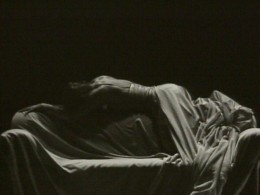
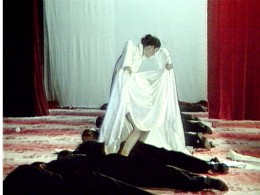
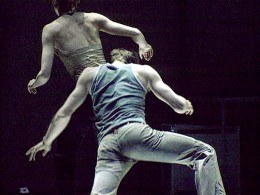
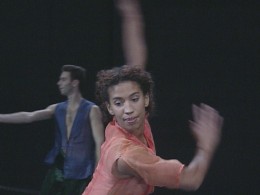
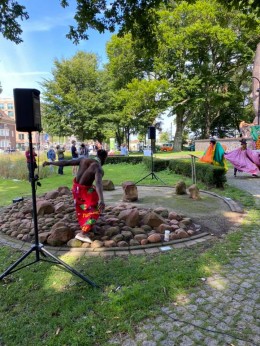
![Portrait von Henrietta Horn [Foto: Bettina Stöß]](http://www.deutsches-tanzfilminstitut.de/web/wp-content/uploads/2013/04/Horn6_10_800-260x198.jpg)